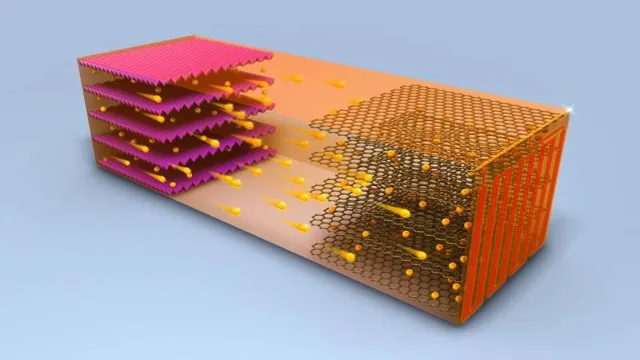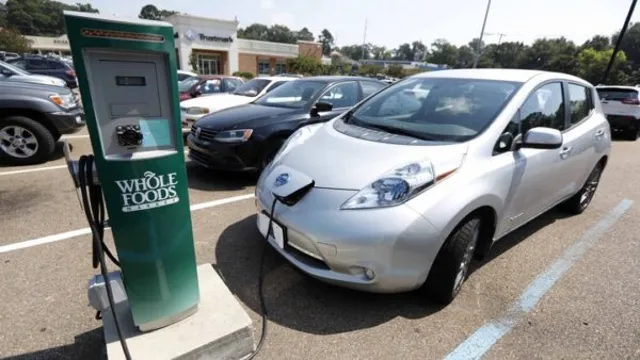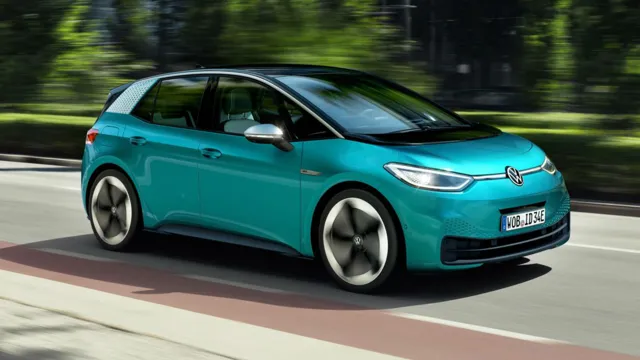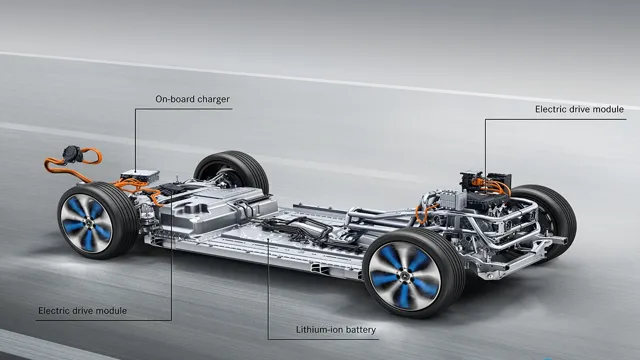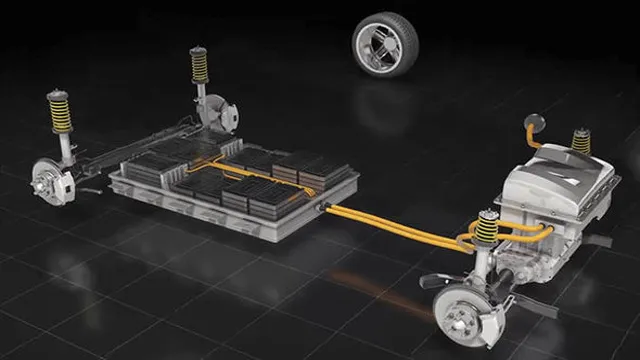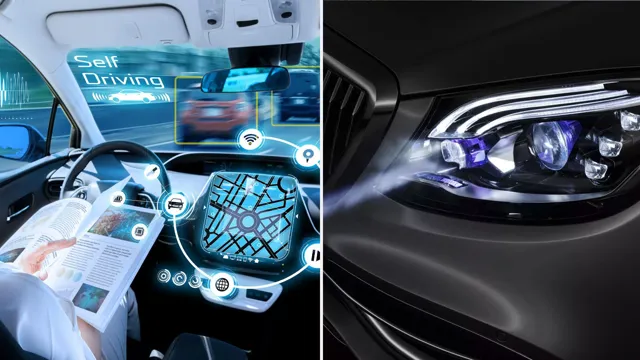Revolutionizing the Automotive Industry: The Latest Breakthroughs in Electric Car Battery Technology
Electric cars have been gaining popularity in recent years, with more and more people opting for environmentally friendly vehicles that reduce their carbon footprint. However, one of the main challenges facing electric cars is their limited battery life and the time it takes to charge them. But what if there was a new battery technology that could change everything? That’s where the game-changing new battery tech for electric cars comes in.
This new battery technology promises to provide electric cars with a longer driving range, faster charging times, and improved safety. With this new battery tech, electric cars could become even more practical and accessible, potentially leading to a shift in the entire automotive industry. But what exactly is this new battery technology, and how does it work? This revolutionary battery tech utilizes solid-state batteries rather than the traditional liquid electrolytes that are currently used in most electric car batteries.
Solid-state batteries have the potential to improve energy density while decreasing the risk of fire, all while allowing for faster charging times. The benefits of this new battery technology for electric cars are vast, and the implications extend far beyond just the automotive industry. With the possibility of faster-charging times and longer battery life, there may be less of a need for large power grids, which could lead to more reliable and cost-effective energy solutions.
Overall, the potential of this new battery technology is truly exciting, and it could have a significant impact on our future. As the automotive industry continues to shift towards more sustainable solutions, it’s innovations like this that will help pave the way forward.
Current Challenges with Electric Car Batteries
Electric cars are becoming more popular as an eco-friendly alternative to gas-powered cars, but one of the biggest challenges in their adoption is the battery technology. The current lithium-ion batteries used in most electric vehicles have several limitations, including high cost, limited range, and a long charging time. To address these challenges, researchers are working on developing new battery technologies that can offer higher energy density and faster charging times.
Some of the new battery technologies being explored include solid-state batteries, which offer higher energy density and are safer than traditional lithium-ion batteries, and lithium-sulfur batteries, which could provide a significant increase in energy storage capacity. As electric car manufacturers continue to invest in developing new battery technology, the future looks promising for a more efficient and sustainable electric vehicle industry.
Short driving range and long charging times
Electric cars are becoming increasingly popular due to their environmental benefits, but there are still some challenges with the technology that need to be addressed. One of the biggest challenges is the short driving range and long charging times of electric car batteries. This can be especially problematic for people who need to travel longer distances, as they may need to stop frequently to recharge their vehicle.
In addition, the charging process can take several hours, which can be frustrating for drivers who are used to quickly refueling their gas-powered cars. However, as battery technology continues to improve, these issues are gradually being addressed. For example, some newer electric car models have longer driving ranges and faster charging times, making them a more viable option for daily commuting and longer trips.
As more and more people turn to electric cars, it is likely that these challenges will continue to be addressed, paving the way for a cleaner, greener transportation system.
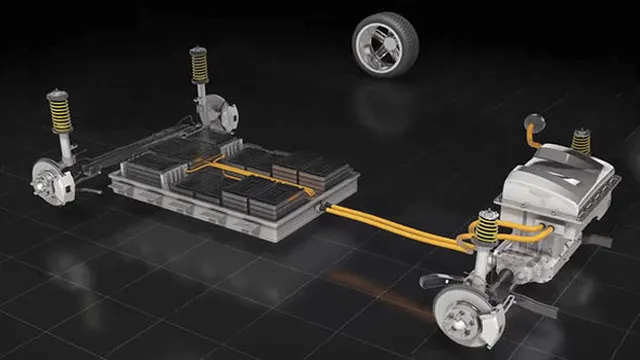
Limited battery lifespan and high replacement costs
The electric car battery industry has made significant strides in recent years, but there remain several challenges to overcome. One of the most significant issues is the limited lifespan of electric car batteries. These batteries can last anywhere from five to ten years, depending on usage and environmental factors.
Once the battery reaches the end of its life cycle, it must be replaced, and the cost of replacement can be high, often reaching thousands of dollars. This makes owning an electric car less financially feasible for many drivers, who may opt for traditional gasoline-powered vehicles instead. As the industry continues to evolve, researchers are searching for ways to extend battery life and reduce the cost of replacement, making electric cars more accessible and affordable for everyone.
Emerging Battery Technologies
As electric cars continue to rise in popularity, new battery technologies are being developed to make them more efficient and cost-effective. One of the most promising new battery technologies is solid-state batteries, which replace the liquid electrolyte found in traditional lithium-ion batteries with a solid conductive material. This not only increases energy density and reduces the risk of overheating or explosion, but also allows for faster charging times and longer shelf-life.
Another emerging battery technology is lithium-sulfur batteries, which have a higher energy density than lithium-ion batteries and can potentially hold up to five times more energy per unit weight. While these new battery technologies hold a lot of promise for the future of electric cars, there are still hurdles to overcome in terms of cost and scalability before they can become mainstream. Nonetheless, the development of these technologies underscores the importance of continued innovation in the clean energy sector.
Solid-state batteries for faster charging and longer range
The introduction of solid-state batteries is a breakthrough in the field of energy storage. These batteries have the potential to revolutionize the way we look at electric vehicles (EVs). They are fast charging, have a longer range, and are safer than traditional lithium-ion batteries.
Solid-state batteries use a conductive solid electrolyte instead of a liquid electrolyte, making them less prone to catching fire and exploding. With their higher energy density, they can store more power in a smaller space, allowing for smaller and more efficient EVs. This technology is still in the developmental stage, but if successfully commercialized, solid-state batteries could be a game-changer for the EV industry.
Lithium-sulfur batteries for improved energy density
Lithium-sulfur batteries are gaining traction as a promising solution to the problem of limited energy density in traditional battery technologies. With lithium-sulfur batteries, higher energy density means longer-lasting batteries that can power everything from electric vehicles to smartphones. Unlike conventional lithium-ion batteries, which use heavy metals like cobalt in their cathodes, lithium-sulfur batteries use lightweight sulfur instead.
This makes them much cheaper, safer, and more eco-friendly. Additionally, because sulfur is abundant and cheap, the cost of producing lithium-sulfur batteries could be significantly lower than other battery types. The only major drawback to these batteries is their relatively short lifespan compared to other battery technologies, but researchers are working on improving their durability and longevity.
With the growing demand for sustainable energy and the push towards renewable power, lithium-sulfur batteries are likely to play a vital role in powering our future.
Flow batteries for longer lifespan and easy maintenance
Flow batteries are emerging as a promising technology for energy storage, offering a longer lifespan and easy maintenance compared to traditional batteries. Unlike conventional batteries, flow batteries use two separate liquid electrolyte solutions that flow through an electrochemical cell, generating electricity. This design allows for the easy replacement of the liquid electrolytes, which means that flow batteries can have a longer lifespan than traditional batteries.
Moreover, flow batteries are easier to maintain and have a lower risk of degradation or fire hazards. These advantages make flow batteries ideal for use in large-scale energy storage systems, such as in wind or solar farms, where a reliable and durable energy storage solution is essential. With the increasing demand for effective energy storage solutions, flow batteries are likely to play a significant role in the transition to a more sustainable energy infrastructure.
Benefits of New Battery Tech for EV Drivers
As electric cars become more popular, new battery technologies are emerging that promise longer ranges, faster charging, and lower costs. One such technology is solid-state batteries, which use a solid electrolyte instead of the liquid or gel electrolyte found in traditional lithium-ion batteries. Solid-state batteries have several advantages over conventional batteries, including faster charging times, higher energy densities, and lower risk of fire.
They are also more durable and have a longer lifespan, making them a more sustainable option for electric car owners. Another emerging technology is the use of silicon anodes, which can increase the energy density of lithium-ion batteries by up to 40%. This means that electric cars could potentially achieve longer ranges without the need for larger and heavier batteries.
With these new battery technologies on the horizon, electric car owners can look forward to even more efficient and sustainable transportation options in the future.
Extended driving range and shorter charging times
The latest advancements in battery technology for electric vehicles provide a number of benefits for drivers. One of the most significant advantages is the extended driving range that new batteries offer. With improved energy density and more efficient designs, drivers can now travel longer distances on a single charge than ever before.
Another major benefit is the shorter charging times that these new batteries enable. Instead of waiting several hours to charge up, many EV drivers can now recharge their vehicles in just a fraction of the time. Overall, the latest innovations in battery technology are helping to make electric vehicles more practical and convenient for drivers who are looking for a greener and more efficient way to get around.
Lower maintenance costs and longer battery lifespan
Electric vehicle (EV) drivers can benefit greatly from the new battery technology that has emerged. With these new batteries, drivers can enjoy lower maintenance costs and longer battery lifespan. Traditional lithium-ion batteries have had a limitation in terms of the number of charging cycles they can withstand.
These limitations lead to a shorter lifespan for the battery and more frequent replacements. The new battery technology promises to solve this issue by allowing for thousands of charging cycles before needing replacement. This means that the batteries can last much longer, resulting in lower costs for drivers.
Additionally, the new batteries require less maintenance, which results in even more cost savings. With these benefits, the new battery technology could revolutionize the EV industry and make electric cars even more accessible to the public. So if you’re an EV driver, keep an eye out for these new battery options because they could make your life much easier and more affordable.
Future of Electric Cars and Battery Technology
As electric cars become more popular, researchers are working to develop lighter and more efficient batteries. Innovations in battery technology are critical for the widespread adoption of electric vehicles. With the current technology, electric cars are still more expensive than their conventional counterparts.
However, new battery technology will make them more affordable and could potentially give them a longer range. Scientists are researching various battery chemistries, such as solid-state batteries, which have the potential to store more energy and charge faster than current lithium-ion batteries. Some companies are also developing ultrafast charging technologies, which will make recharging electric cars as quick and easy as filling a gas tank.
As battery technology improves, we can expect to see electric cars become more accessible to people around the world, and we will continue to see advancements in the coming years.
Conclusion
In conclusion, the new battery technology for electric cars is truly groundbreaking. With longer ranges and faster charging times, electric cars are becoming a viable option for all drivers. It’s clear that the future of transportation is electric, and this new battery technology is the key to unlocking that potential.
So, say goodbye to the gas-guzzling days of the past and welcome to the exciting, eco-friendly world of electric vehicles. Remember, whether it’s a short commute or a cross-country adventure, the new batteries will ensure that you’re always revving towards a brighter, more efficient future.”
FAQs
What is the latest battery technology used in electric cars?
The latest battery technology used in electric cars is lithium-ion batteries, which have high energy density and longer lifespan than traditional lead-acid batteries.
How do electric car batteries compare to traditional gasoline-powered cars in terms of efficiency?
Electric car batteries have higher efficiency compared to traditional gasoline-powered cars because they convert more than 60% of the stored energy into motion, whereas gasoline-powered cars convert only about 20-25% of the stored energy into motion.
Can electric car batteries be recycled?
Yes, electric car batteries can be recycled and reused for other purposes. The recycling process helps recover valuable metals like cobalt, nickel, and lithium, which can be used for manufacturing new batteries.
What are the limitations of current battery technology in electric cars?
The limitations of current battery technology in electric cars include limited driving range, long charging times, and high cost. However, research and development in battery technology are addressing these issues, and future batteries are expected to solve these limitations.
